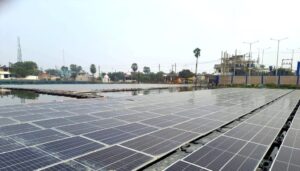Climate Finance on Bihar’s Agenda: New Climate Finance Cell and RE Policy on the Anvil
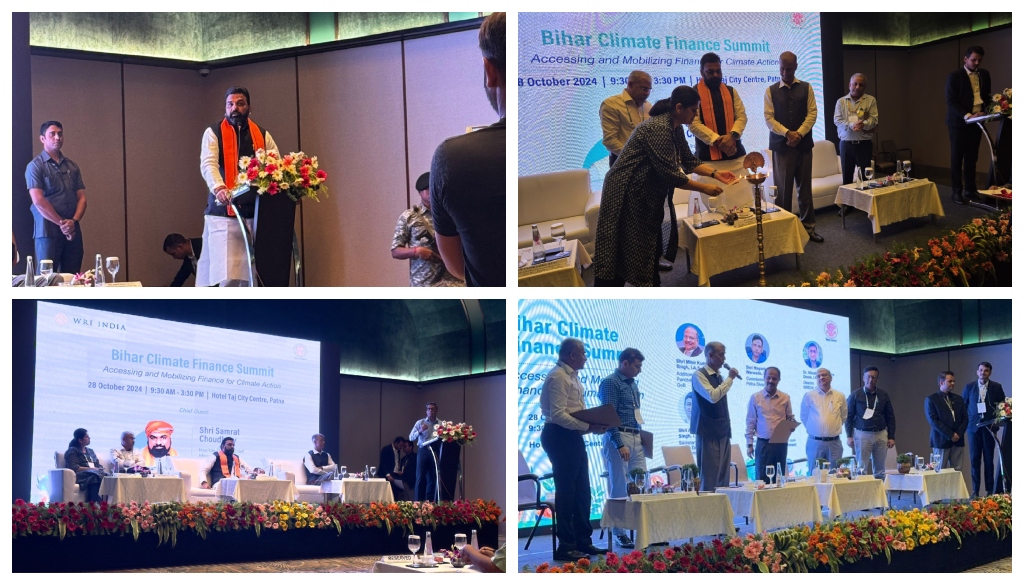
Patna: The Bihar government announced a series of initiatives to advance its climate finance and sustainability goals, including the formation of a climate finance cell within the finance department and the anticipated launch of the state’s Renewable Energy (RE) Policy in November. These announcements were made during the Bihar Climate Finance Summit, held on Monday by the finance department in collaboration with WRI India.
In his address, Bihar’s Deputy Chief Minister and Finance Minister Samrat Choudhary highlighted the state government’s commitment to securing climate finance. “In the undivided Bihar, Jharkhand contributed 87% of the revenue while Bihar contributed only 13%, but the current government has worked tirelessly to ensure financial resources for economic and social development. We’ve also increased our green cover from 10% to approximately 16%. Other climate actions include promoting solar energy, scientific waste management, and electric vehicles,” he stated.
Deepak Kumar, principal secretary to the Chief Minister, said there should be discussion on the proposal of creation of climate finance cell. Highlighting recent government efforts, he cited the construction of rubber dams in the Falgu River in Gaya and the Ganga Water Lift Scheme for cities like Rajgir, Gaya, and Nawada. He called for curbing excessive groundwater extraction, tree felling for road widening and advocated for incorporating environmental studies in primary education.
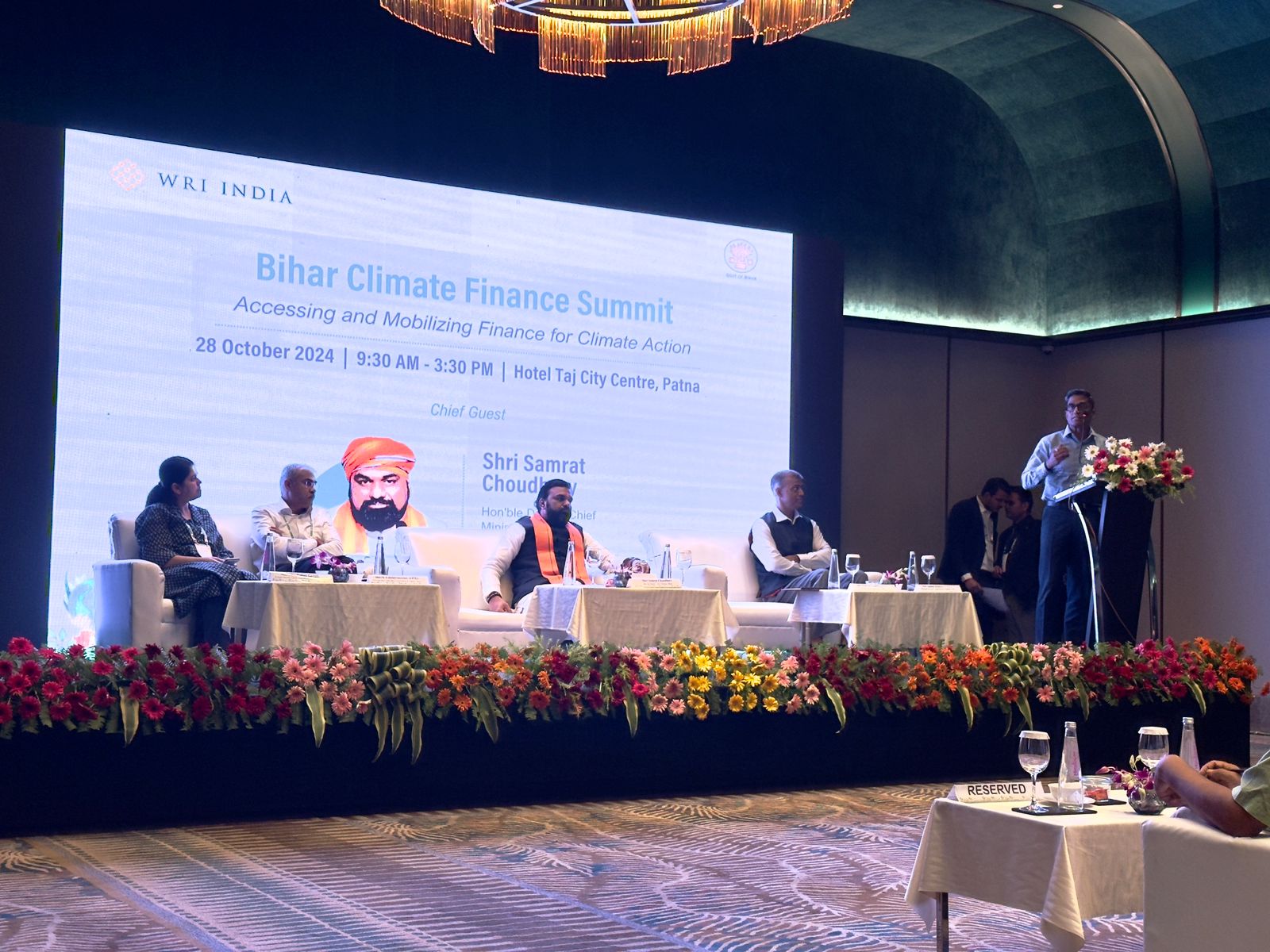
Development Commissioner Pratyaya Amrit emphasized the importance of private sector involvement in climate initiatives to complement government efforts. “Bihar is one of 25 states with a State Action Plan on Climate Change (SAPCC). We’ve increased our green budget component from 7% to 10% and are implementing various efforts under the Jal Jeevan Hariyali and Bihar Vikas Mission initiatives,” he said.
Anand Kishore, Principal Secretary of the finance department, said a proposal for formation of the Climate Finance Cell would soon be sent to the state government for seeking a nod. “Pending state government approval, we will soon establish a Climate Finance Cell within the department. Its main functions will include identifying green or climate-oriented projects, securing financing, supporting other departments in accessing climate finance, and monitoring these green initiatives.”
Uday Kant Misra, Vice Chairman of the Bihar State Disaster Management Authority (BSDMA), explained BSDMA’s collaborative work with the Indian Space Research Organisation (ISRO) on monitoring floods, infrastructure, and flood protection measures. He noted BSDMA’s work with the Indian Institute of Science (IISc) on a ‘digital twin’ technology to forecast urban floods.
Further addressing climate finance, Mihir Kumar Singh, additional chief secretary of the Panchayati Raj department, discussed linking policies with funding. “The government could consider a cess or similar charges on transactions involving natural resources or conservation efforts, using the proceeds to fund green projects,” he suggested.
Santosh Kumar Mall, principal secretary of water resources, highlighted the escalating frequency of climate-related disasters. He reported that recent downpours in Nepal measured over 400mm on September 27-28, an event their flood management systems successfully predicted. “Yet, mitigation efforts are imperative,” he said.
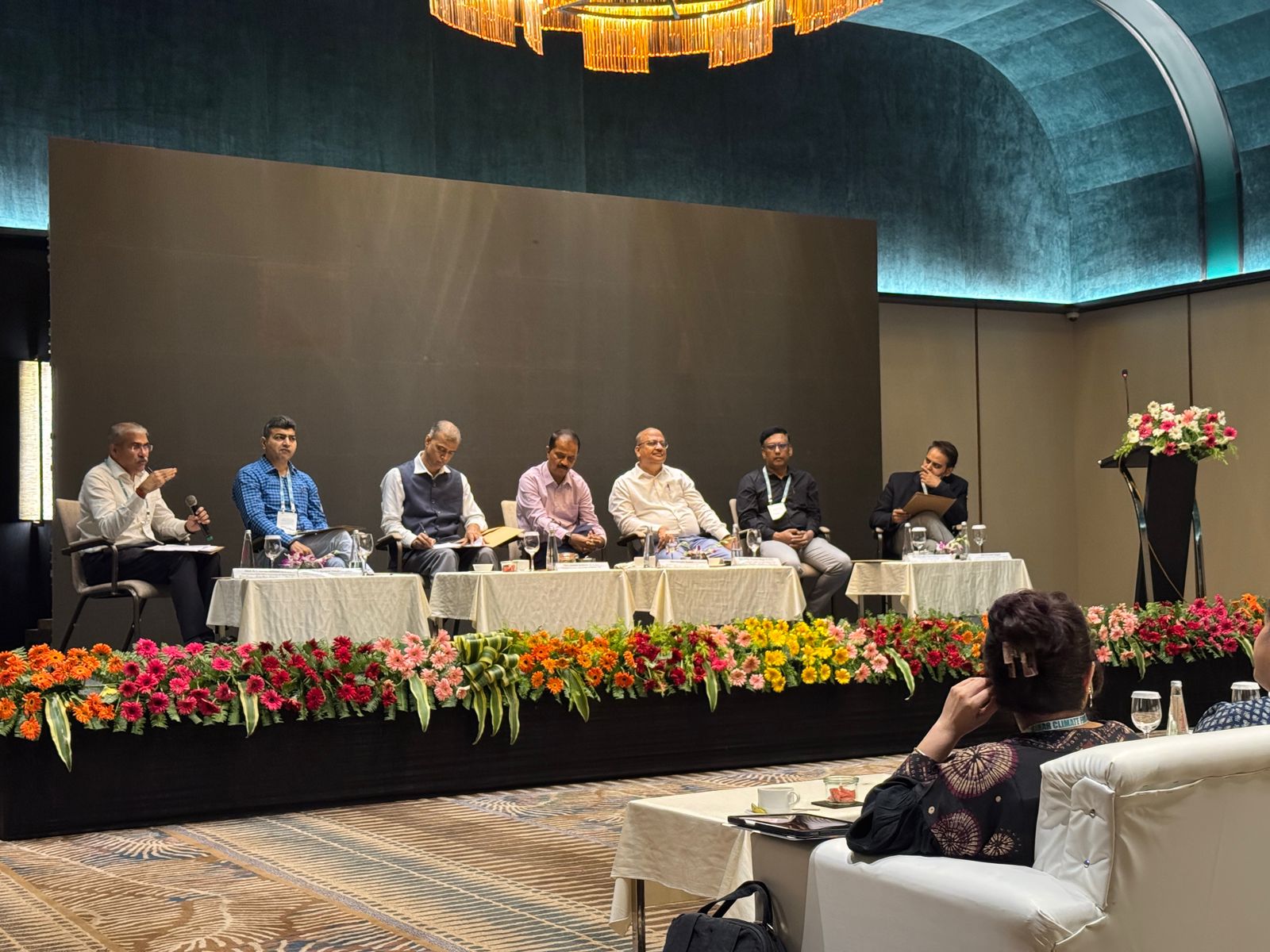
Sanjay Kumar Agarwal, Secretary of Transport, advocated for a separate budget allocation for green projects. “Instead of just earmarking funds within existing allocations, we could allocate a fixed percentage specifically for green projects. The private sector could also be encouraged to contribute to climate finance,” he remarked.
Pankaj Kumar Pal, Secretary of the Energy Department, said the New RE Policy is expected to be launched in November. “We have already solarized around 33% of agriculture feeders,” he said.
In his remarks, Abhay Kumar Singh, secretary of urban development and housing, discussed the need for coordination between the finance and urban development departments to incentivise urban green projects. He highlighted waste-to-energy initiatives in Patna, sewage treatment plants along the Ganga, and rainwater harvesting.
Ashima Jain, Secretary (expenditure), Finance Department, addressed challenges in attracting private climate finance. “The public sector alone cannot meet the full demand for climate finance. The private sector needs support in structuring public-private partnerships, technical capacity-building, and understanding financial instruments like green bonds and carbon credits,” she said.
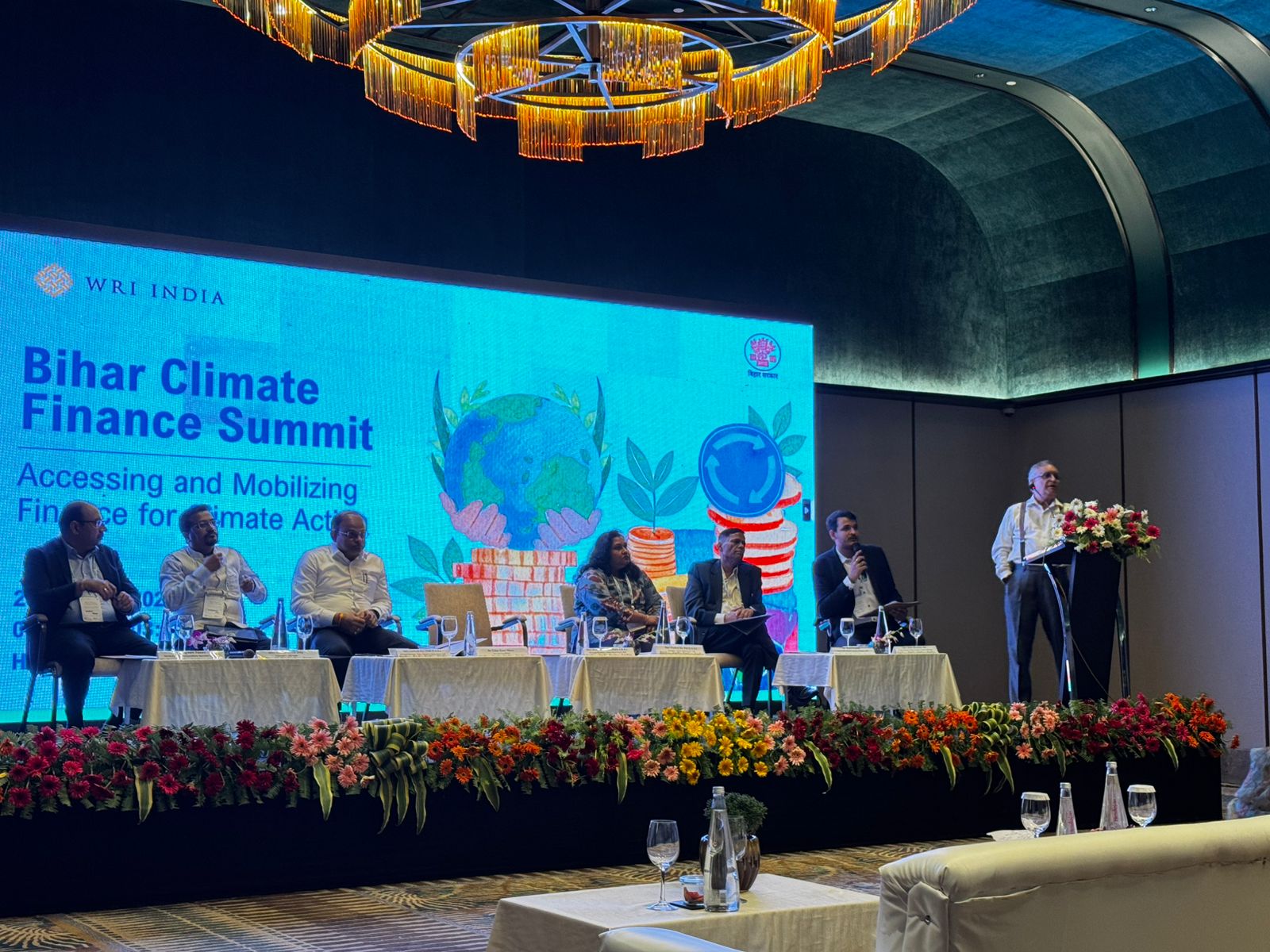
Patna’s Development Commissioner, Mayank Warwade, affirmed the state’s commitment to reaching Net Zero by 2070, with progress already visible on the ground.
S Chandrasekar, chief conservator of forest cum state nodal officer, environment & climate change, stressed on increasing the green cover in Bihar, including afforestation in notified forest areas and encouraging agro-forestry outside the forest area.
Ulka Kelkar, executive director of Climate, Economics, and Finance (CEF) at WRI India, emphasised the timeliness of the workshop, given the upcoming COP29 in Baku, Azerbaijan. “With climate finance as a central issue, this workshop allows for sharing experiences and priorities to mobilise climate finance aligned with Bihar’s climate goals,” she said.

